... News flash, you do.
I recently read a post on LinkedIn that spoke about the illogical nature of requiring those applying for graduate roles to have years of experience to their name. Whilst I agree with the sentiment, what if there was another way to think about it? What if the real reason we are asked to have so much work experience is because recruiters want to see how we package ourselves?
Let me put it to you another way. What if our life experiences can be repackaged as work experience?
So in essence, YOU are the relevant work experience.
Tip 1: Know what NOT to do
I'm big on having a success mindset. And part of living with a success mindset is positively affirming what you can do instead of focusing on what you can't do.
Unfortunately, most of us were raised to focus on the negatives, so our immediate go to when we think we don't have any relevant work experience, is to highlight our weaknesses. Now unlearning is a difficult process, but a great way to start is by identifying what NOT to do, so we can recognise it and be intentional about changing it.
The list below isn't exclusive, but it's a great start of common things we often do when asked about work experience that we really shouldn't be doing. More importantly, I've included actionable ways we can change what we shouldn't be doing.
Tip 2: Highlight your strengths
This tip is slightly different to the rest because I've often found that sometimes tips just aren't enough. Sometimes, I need an example for it to really make sense. So here is an example to help you:
Example
In my first year at university, I founded the Durham African and Caribbean Society dance club to help teach African and Caribbean culture through dance. To balance this with my academic commitments, I made a list of the academic deadlines I had to meet, so I could prioritise meeting these around when to practice for dance and working 16 hours a week at a pizza takeaway. Membership grew in my second year and I am immensely proud of this achievement as I found a way to combine my love for dance with cultural learning, whilst staying on top of my studies. I understand that my role as a trainee can be a balancing act at times, but it is important to deliver high quality work and an effective way to do this is to have a good prioritisation system like the one I developed through my experience.
Notice that in the example above, I followed a particular structure, CARR. This stands for Context, which sets the scene for the life experience that you have. Action which describes the individual steps you took in the scenario. Result which explains what the positive outcome was of your actions. And Relevance, the bonus sentence which demonstrates your understanding of the role you are applying for.
Tip 3: Understand how transferable skills relate to your line of work
It would be impossible to go through every part-time job or volunteering role out there and identify what the transferable skills are. But what I can do is give you a play-by-play for HOW you can make sure you are picking on the right skills.
First, go on the firm's website and write down what the top 5 skills are for the role you are applying for. You may also find the top 5 skills by doing a quick google search, but some companies have specific skills they require so it's always best to check the company website first if you can.
Next, write down all the roles (both paid and unpaid) you have had, and remember nothing is irrelevant. This can include things like managing the projector at church or mentoring students in lower years at school.
Then, write down the top 3 skills gained from all the roles you have done.
Finally, match up the skills gained from your life experience to the skills they are looking for in the job role. There is an additional sub-step because it's important that you identify what tasks you will be doing in the role that will require those specific skills. Being able to identify the correct task is what shows that the skill is actually transferable.
Here are a couple of "irrelevant" experiences and the skills derived from them to get you started.
If these tips don't float your boat, try the ones I've posted on YouTube instead, subscribe here to be updated first: Success With Steph - YouTube
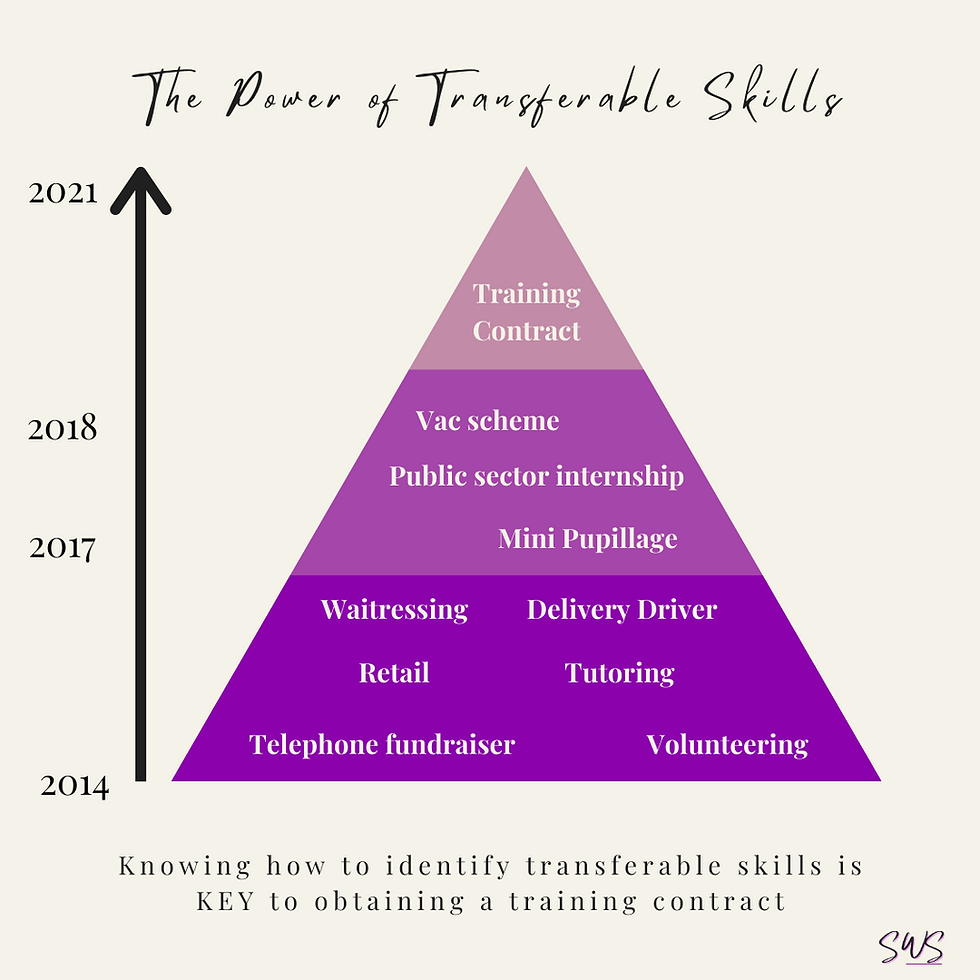
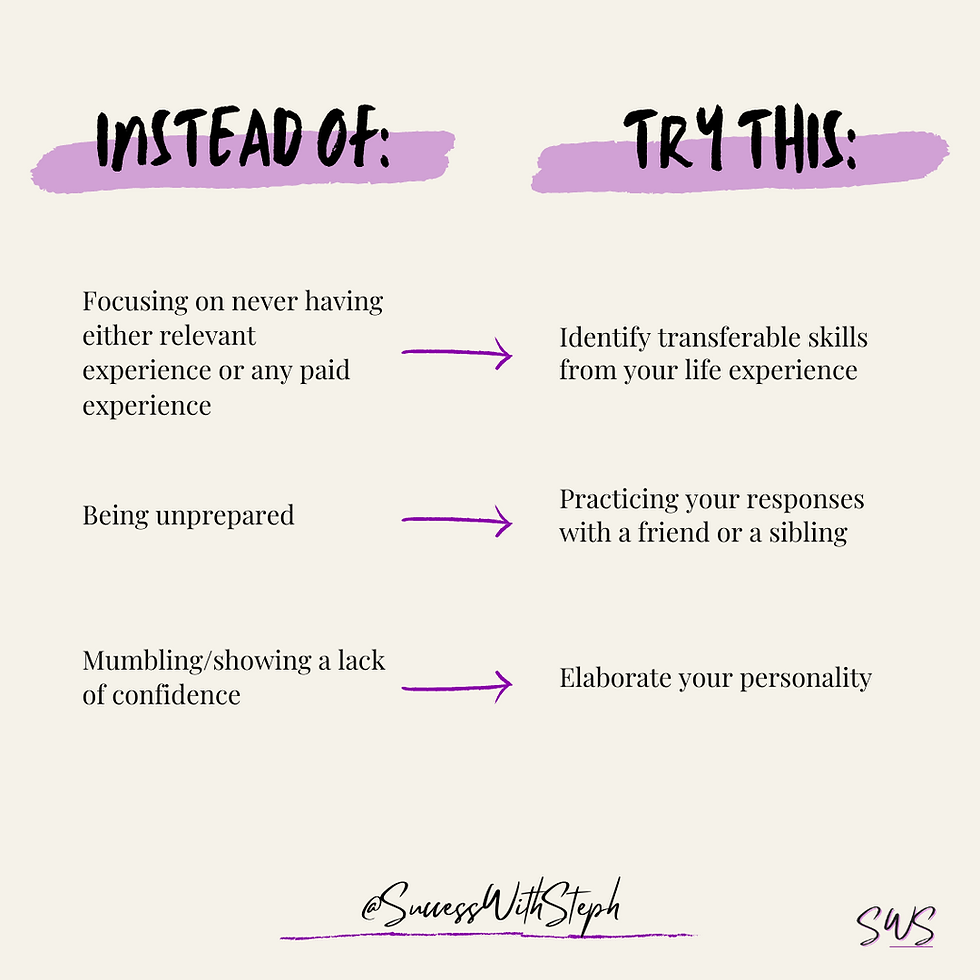
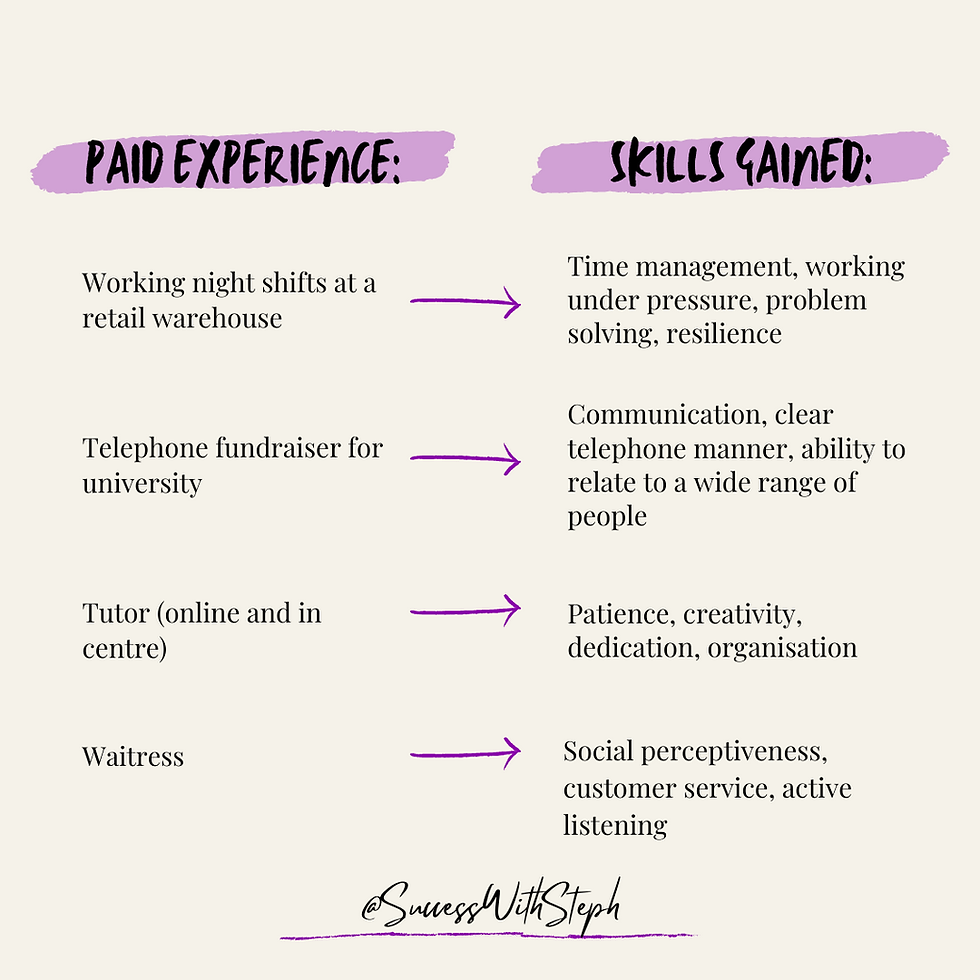
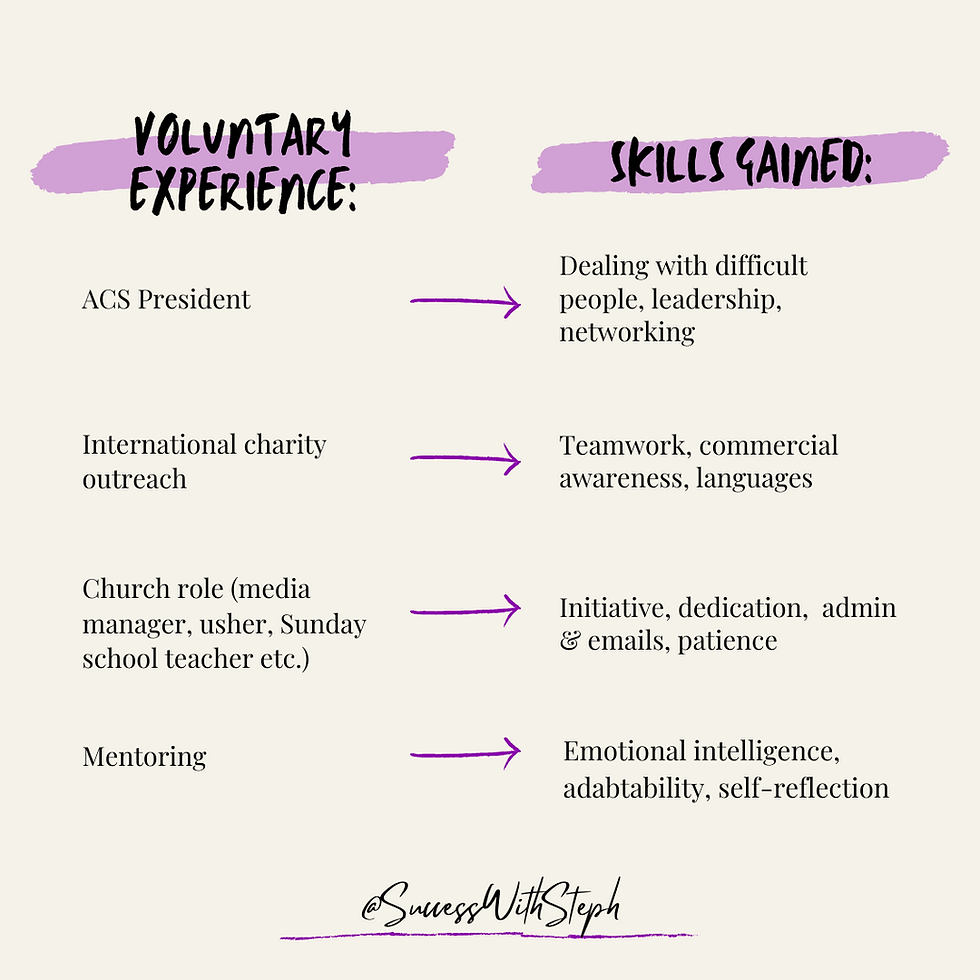
%20(1).png?width=300&height=300&name=SWS%20Logo2%20(4lightbackgrounds)%20(1).png)
%20(1).png?width=500&height=500&name=SWS%20Logo2%20(4lightbackgrounds)%20(1).png)

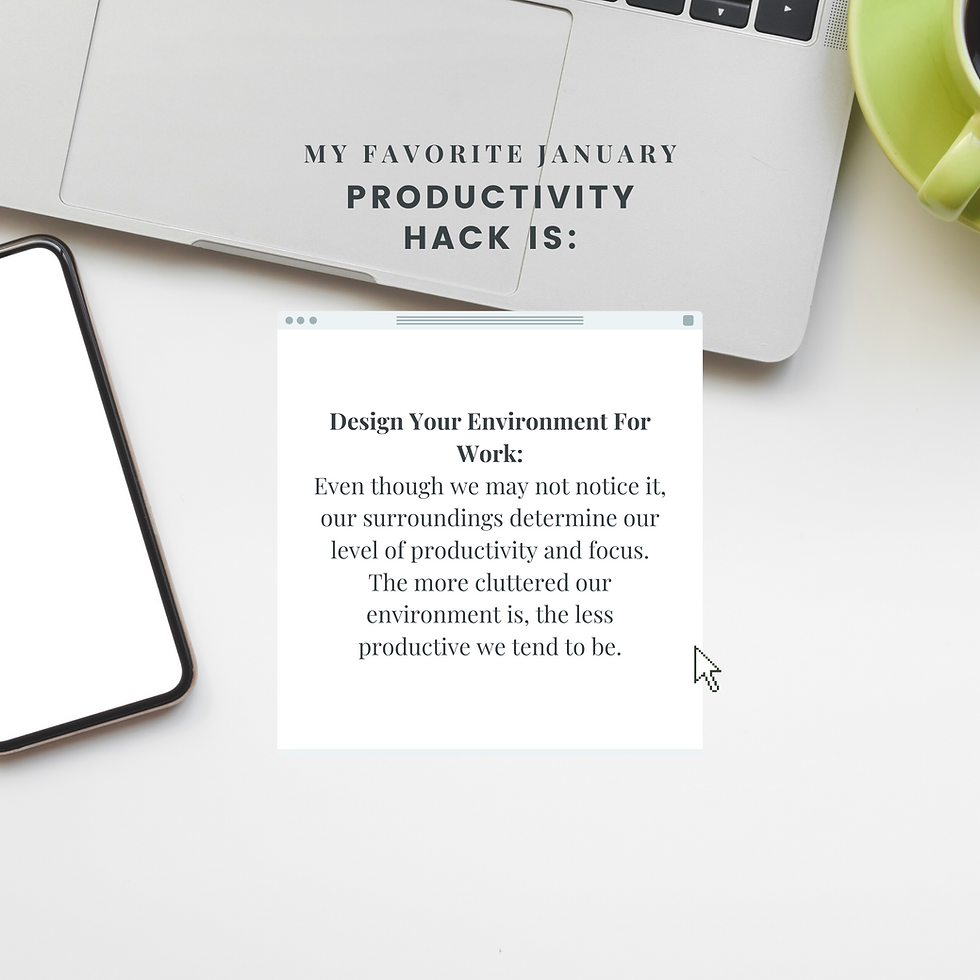
Blog comments